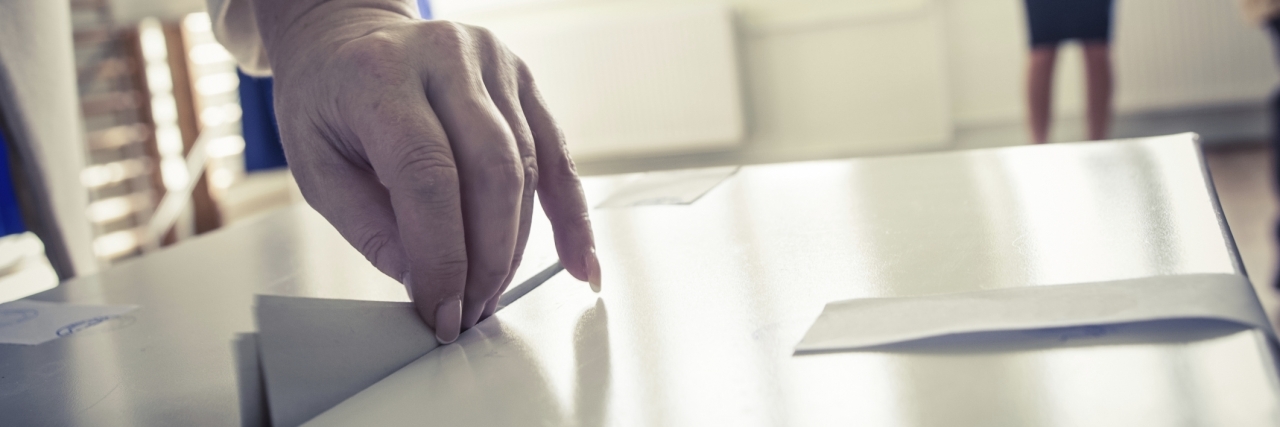NBC Washington’s News4 I-Team reported Tuesday that dozens of polling places in the District of Columbia, Maryland and Virginia may not be accessible to voters with disabilities. Though officials at the district’s Board of Elections were formally notified about some of the problems, which include heavy doors, steep ramps, narrow doorways and broken doorbells, some issues may not be resolved by Washington D.C.’s primary election on June 14.
News4’s I-Team reviewed internal audits revealing that during the 2014 election season, 37 of 89 polling places had accessibility issues, including four the team reviewed with Ian Watlington, a disability advocacy specialist with the National Disability Rights Network and wheelchair user.
The D.C. Board of Elections told News4 it has fixed these issues, but a memo it issued in December 2015 told a different story.
“The lack of cooperation from managers of certain facilities used as polling places have a direct impact on accessibility at certain polling places,” the memo read, according to News4. “The lack of alternative polling place options for relocation requires that the (Board of Elections) continue to use certain facilities despite accessibility issues.”
The D.C. Board of Elections’ online listing contains a space for information on whether a voting facility is “Accessible to seniors and people with disabilities.” This field is blank for each of the 143 polling places.
Margarita Mikhaylova, Compliance Officer and Acting Public Information Officer of the D.C. Board of Elections, told The Mighty that come election day, her agency will do everything in its power to ensure voter access.
“BOE inspects each and every polling site thoroughly,” Mikhaylova wrote in email. “Obviously, the final test of whether or not the voting program is accessible to all voters comes on Election Day, through onsite modifications, the use of poll workers dedicated to helping voters who request assistance, and other measures as necessary.”
Mikhaylova said the Board of Elections works with owners of polling places to make “reasonable improvements.” The agency makes several alternatives available for voters who feel their polling place is inaccessible, including submitting a request to send their ballot to a different location and “no-excuse” absentee voting.
On election day, Mikhaylova said the Board of Elections will provide curbside voting as well as “Voter Assistance Clerks” posted outside to assist voters in getting into and around polling places.
Mikhaylova added that the Board of Elections will dispatch Americans with Disability Act (ADA) Compliance Assistants on Election Day to monitor voting sites.
“[The ADA Compliance Assistants will] ensure that there are no obstructions on the pathways towards the polling places, that doors are propped open where possible, that bells are functioning properly, as well as any other action that will assist in creating an independent and accessible voting experience,” Mikhaylova wrote.
Voting accessibility issues, however, aren’t unique to the D.C. area. A Rutgers University study on accessibility in the 2012 election found that voter turnout was 5.7 percentage points lower among people with disabilities than it was for people without disabilities. Voter registration rates for people with disabilities suffered, too, at 2.3 percentage points lower than that of people without disabilities. And according to the Rutgers survey, nearly one-third (30.1 percent) of voters with disabilities said they experienced difficulty in voting at a polling place in 2012.
In California, disability advocates reported stigma surrounding the use of a voting machine, according to KQED News.
“There’s a lot of stigma in institutionalized ableism around that machine,” Ted Jackson, director of community organizing for the California Foundation for Independent Living Centers, told KQED. “Poll workers are afraid to suggest it and quite frankly, from having dealt with a lot of our county elections officials, I think a lot of them have a little stigma about that machine, too.”
Last week, a federal judge ruled that blind voters in Ohio are being discriminated against due to a lack of electronic absentee voting procedures. As it stands, the state only makes absentee ballots available on paper, so blind voters must rely on others to read and complete their ballots for them. Representatives of Disability Rights Ohio, which filed the suit on behalf of the National Federation of the Blind, say there is little chance for alternative absentee voting methods to be established in time for November’s general election.
Are you a voter with a disability? What has your election day experiences been like in the past? Let us know in the comments below.

